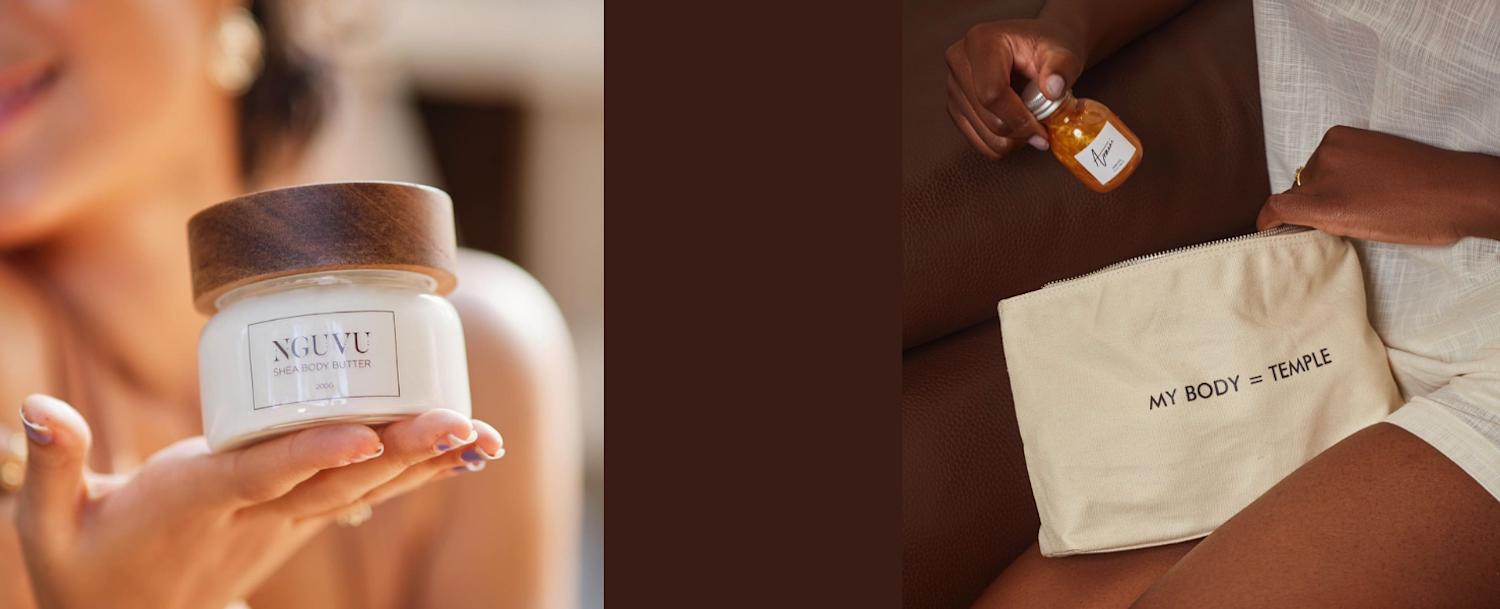Why is the business of cosmetics, beauty, and personal care products in Africa booming? Africa’s beauty market is one of the most lucrative businesses too. Why? According to market research, it estimated the beauty industry in the Middle East and Africa at about $27.1 billion in 2018. Of this figure, South Africa alone represented $4.5 billion; Nigeria and Kenya are second and third among sub-Saharan nations, with Kenya’s market totaling more than $320 million. In comparison, it estimated the Asian market at $128 billion in the same year. As a result, the outlook for the African cosmetics, beauty, and personal care products market is very positive for the coming years as there is so much room for it to grow with the Asian markets. Let’s explore the fundamental reasons for the huge and growing demand for beauty and personal care products across Africa.
Cosmetic Are A Basic Daily Need
If you’re like most people, you’ve probably had the wrong notion about the term ‘cosmetics’ for a very long time. Well, it’s time to erase it: In today’s world, cosmetics have become a very basic need. Everyone, including poor people, will enhance the way they look, feel, and smell. Besides helping us with our hygiene, cosmetics have become vital to our self-esteem and largely determine how other people treat us and our ability to influence them. It’s not a surprise that beauty and skincare products are the fastest-selling items in Africa after food!
Africa’s Young Middle-Class Population Is Fuelling Demand
Africa is home to the youngest population in the world with more than half of its one billion people below the age of 20. What is more interesting is a large and growing middle-class beauty market in Africa? At the moment, there are over 300 million people on the continent who fit into this category. A significant majority of Africans in the middle class are young and educated city people who are very aware of trends in grooming, fashion, and western culture, these men and women have more spending money at their disposal. Because of their tastes and desires, they are driving the demand for consumer products like beauty and skincare products across Africa!
Women Now Have More Spending Power
In our society, women experience a greater burden and pressure to look beautiful. This is the primary reason hair products and extensions, skincare and make-up products are the largest and most lucrative segments of the global cosmetics market. Of course, these segments are targeted at and dominated by, female consumers. More African women, especially in the middle class, now have more spending power. Higher education is allowing many middle-class African women to pursue promising careers. As a result, more women on our continent have the extra income that gives them the spending power to spend on the latest fashion trends.
Major Cosmetics Categories Entrepreneurs Should Focus On In Africa
Now that we have explored the reasons behind Africa’s huge and growing demand for cosmetic products, it’s time to look at the major categories of this market and the products people are spending on. The cosmetics industry also known as the beauty industry or personal care industry broken down into five major categories:
Hair Care
According to general estimates, up to 20 percent of cosmetic products sold on the market are hair care products. This category includes all products used to make human hair clean and attractive, shampoos, pomade, hair gels, conditioners, coloring and dyes, relaxers, and hair styling products. The biggest spenders in this category are beauty salons and barbershops and women who use a wide range of these products. Recent fashion trends have also increased the amount of spending by men in this category with the growing popularity of dreadlocks, Sporting Waves, and ‘afro’ hairstyles which require more hair care and attention.
Skincare
The skincare products category is the largest and most assorted segment of the cosmetic market with several competing formulas, products, and brands.
The needs of different human skin, normal, dry, oily, and sensitive skin handles the size and variety of skin care products in the African market, and there are lots of local and international brands releasing new and more attractive products every year!
Nearly 30 percent of all cosmetic products sold in this market every year are in the skincare category which includes body lotions, skin moisturizers, cleansers, toners, anti-acne, anti-aging, and facial products.
The growing trend of using skin lightening or ‘bleaching’ products among young African women and men is also feeding the frenzy of demand that has made the skincare products category a multi-billion dollar business. To fight the negative impact of bleaching products, innovative entrepreneurs like Ghana’s Grace Amey-Obeng have built very successful businesses by providing products that help to treat and restore skin damaged by bleaching.
Makeup
Make-up includes a wide range of products used especially by women on the face, eyes, lips, and nails. This category is so segmented that there are very many niches catering to several specific needs.
The common products in this category are lipsticks, concealers, foundation, face powder, blushes, mascara, eyeliners, nail polish, and make-up removers. Besides many international designer brands in the market like Maybelline, Mac, and Fenty, several African-grown and promising makeup brands like Nigeria’s House of Tara, Kenya’s Suzie Beauty line, and Ghana’s Colorbox Cosmetics are becoming very successful.
Personal Care And Toiletries
The products in this category are primarily used to clean the body and maintain personal hygiene, and not necessarily for beautification. The products here fall into the Fast Moving Consumer Goods (FMCG) group because of their high demand and quick consumption.
Fragrances
The fragrances category of the cosmetics market may sell the least volumes but surely makes the most profit of all the product categories in this market. Fragrances include all mixtures of essential oils and aromatic compounds that give the human body a pleasant scent. Common fragrance classes in the market include – Perfumes, Eau de Toilette, Eau de Parfums, Cologne, and aftershave. Of all the cosmetic groups, major designers and celebrity brands tightly dominated the fragrances category. Most of the versions in our open markets are common knockoffs.
Interested In The Cosmetics Products Business?
We have explored the exciting market for beauty and personal care products in Africa and the opportunities that entrepreneurs like you can explore. All indications point to a large and growing demand for these products on our continent now and in the future. As you have seen, several African entrepreneurs and products are emerging as huge successes in this space.
We believe your creativity, and energy can help further the opportunities identified. If you are confident a business in Africa’s cosmetic products market will work for you, you must take action as soon as possible.



